Columbus Day 2017: When is it, and why do Americans celebrate it?
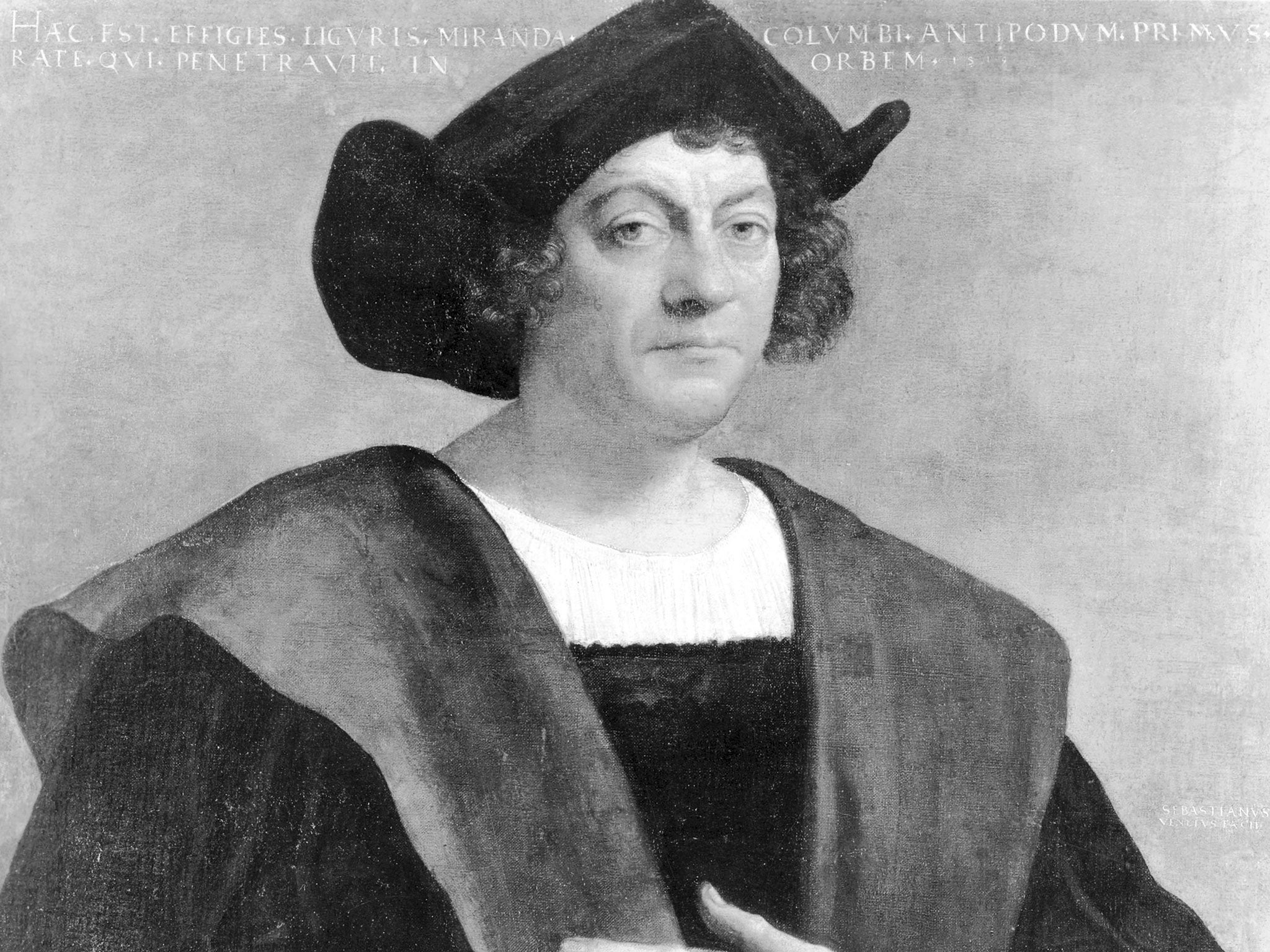
Every October, grateful Americans get a day off work to, ostensively, celebrate the life of explorer Christopher Columbus.
The explorer was originally credited with discovering America, but centuries of research have roundly debunked this claim. Columbus is now holds the slightly less-exciting title of being the first European to explore America since the Vikings in the 11th century.
So why do people across the US celebrate a man who never even set foot in North America – much less discovered it? The answers, below, are complicated.
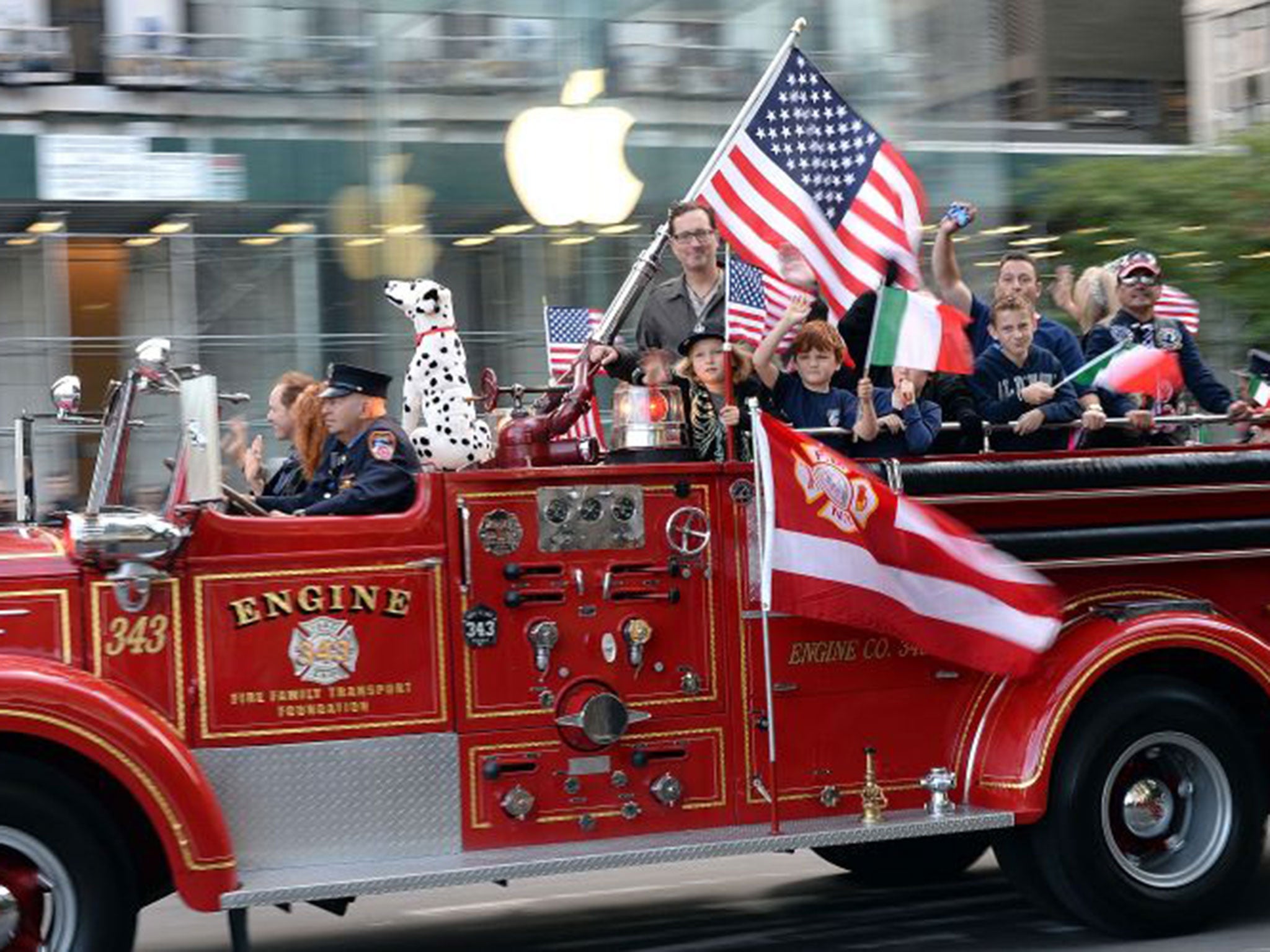
Who is Christopher Columbus?
Columbus was an Italian explorer who set sail for America on 12 October, 1492. The voyage was commissioned by Spanish King Ferdinand, as his wife, Queen Isabella, for the purpose of finding a western sea route to Asia.
Instead of finding in Asia, however, Columbus found himself in the modern-day Bahamas. (Geographic calculations were a little less reliable in the 15th century.) Shortly thereafter, Columbus sailed to modern-day Cuba, where he set up the first known Spanish colony in the Americas.
Over the course of his life, Columbus would sail to Trinidad, South America, and Central America, among other places. On his final voyage, he was acted by a hostile native population in modern-day Panama, and marooned by a storm in modern-day Jamaica. He returned to Spain empty-handed, and died in 1506.
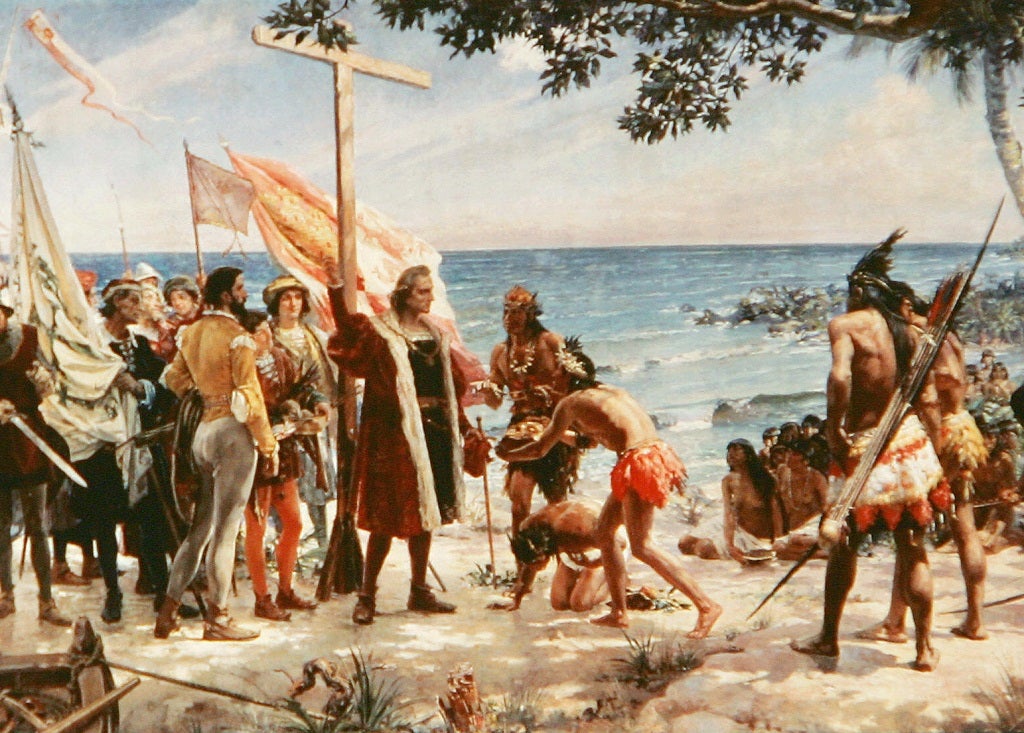
Why does he have his own holiday?
Columbus Day was informally celebrated by various Italian- and Catholic-American communities as far back as the late 1700s. Anti-Catholic and anti-Italian sentiments were common in the US at the time, and Columbus served as an uplifting symbol for these communities.
More than a century later, in 1907, Colorado became the first state to officially observe Columbus Day. Italian immigrants Angelo Noce and Siro Mangini worked with state Senator Casimiro Barela to pass the holiday into law. Mr Magini’s daughter later told the Denver Post that Columbus was “one [person] Italian Americans would not throw rocks at”.
Columbus Day was not named an official national holiday until 1937, when President Franklin D Roosevelt – encouraged by the Catholic fraternal organisation Knights of Columbus – declared a recurring holiday for 12 October. Congress later moved it to the second Monday of October.
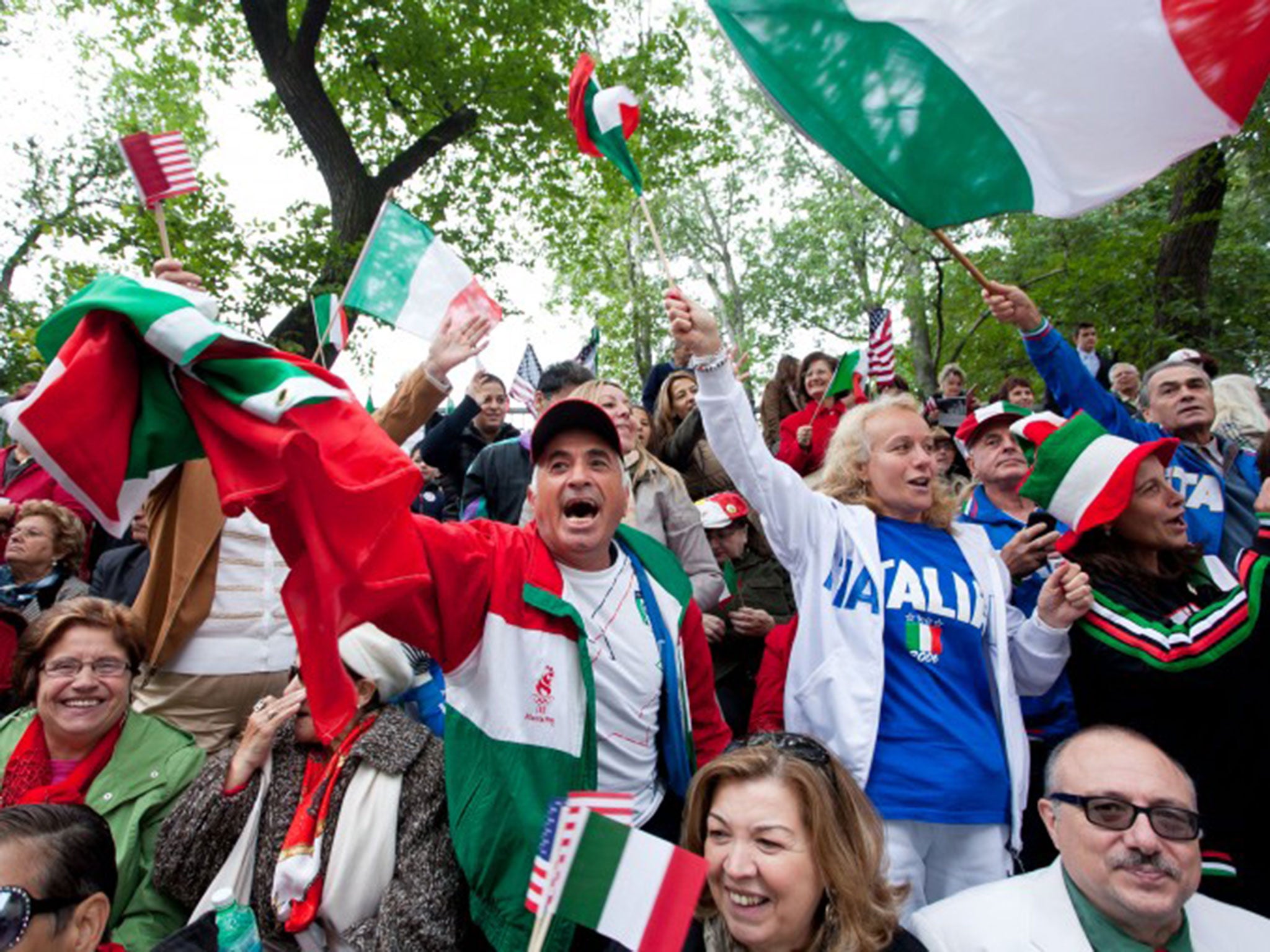
How is it celebrated?
While most Americans just take Columbus Day as a precious day off work, some cities do host parades to mark the occasion. New York and Boston both have sizeable Columbus Day parades, while San Francisco has re-named theirs the Italian Heritage Parade.
Many Italian-Americans use the holiday to display their pride by dressing up, playing music, and of course, making food.
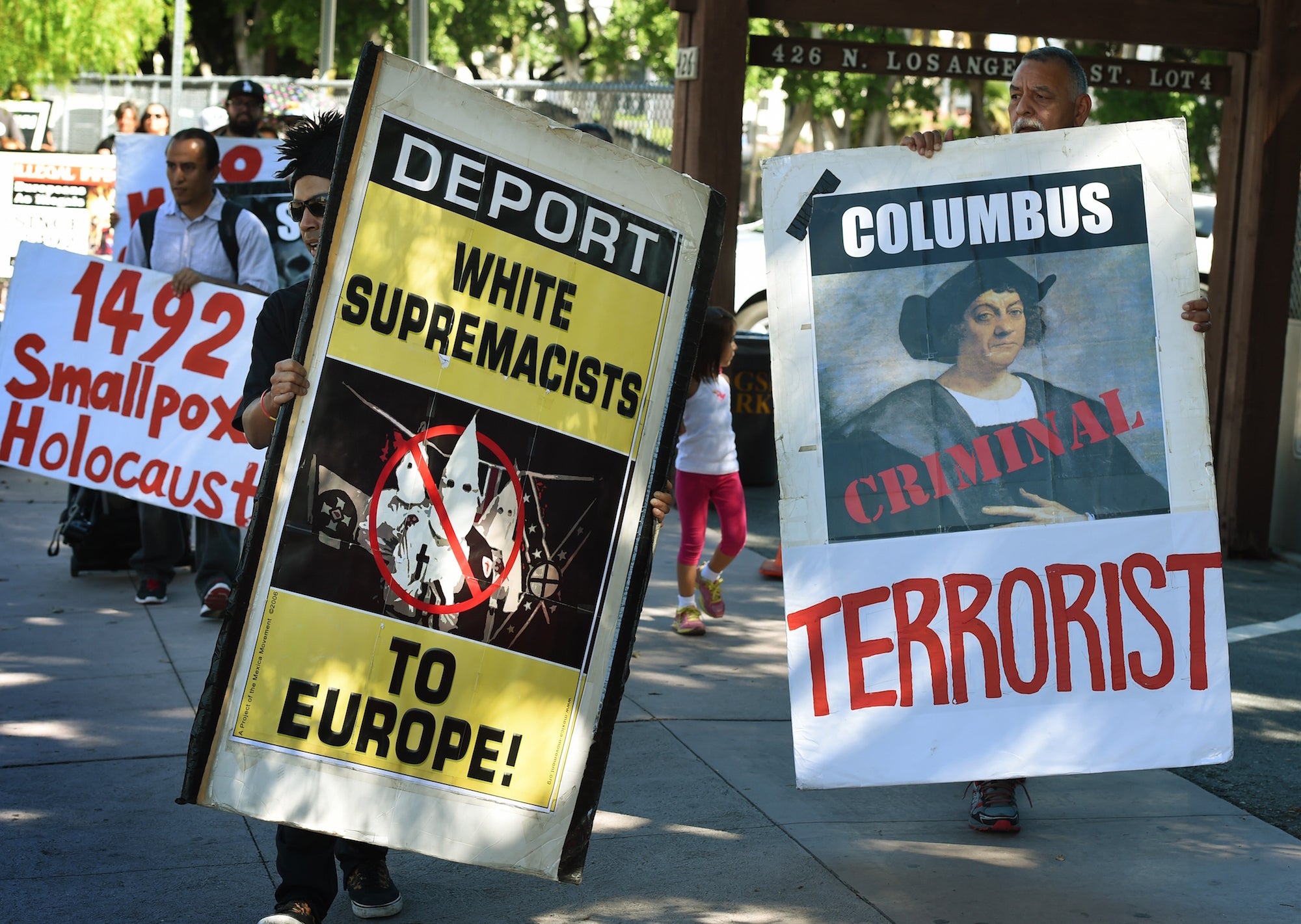
Why is it controversial?
Scholars began critically examining Columbus’s legacy in the late 20th century, arriving a more nuanced – and significantly less flattering – picture of the famed explorer.
Historians pointed out how populations in the areas Columbus explored had been decimated in the wake of his arrival. In his landmark history book, A People’s History of the United States, Howard Zinn pointed to the Arawak Indians on the Bahama Islands. The native population dwindled from thousands to mere hundreds in the decades after Columbus landed.
Columbus also enslaved the people of many of the places he conquered, sending hundreds of slaves back to the Queen in Spain. The people who were not enslaved were often ruled with an iron fist: Columbus was said to have used violence and torture to control the native populations.
What are some alternatives?
In response to this history, several cities and states have elected not to celebrate Columbus Day at all. Instead, they replace it with holidays to commemorate their indigenous populations.
The most common alternative is Indigenous Peoples Day, a holiday celebrating the native peoples of North America. Cities such as Berkeley, California; Seattle, Washington; Albuquerque, New Mexico, and Denver, Colorado, have adopted this holiday in lieu of Columbus Day. Los Angeles will start celebrating Indigenous Peoples Day in 2019.
The state of South Dakota celebrates a similar holiday – Native American Day – on the second Monday of October. Hawaii celebrates Discoverer’s Day, which commemorates the arrival of Polynesian settlers.
Join our commenting forum
Join thought-provoking conversations, follow other Independent readers and see their replies
Comments
Bookmark popover
Removed from bookmarks